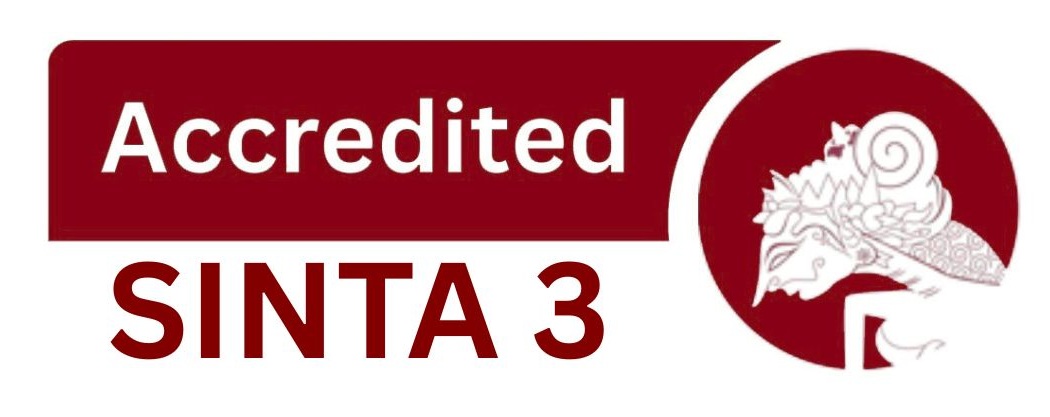TEACHERS’ CHALLENGES ON TEACHING MATHEMATICS IN ENGLISH AT BILINGUAL SCHOOLS
Keywords:
Billingual School, Challenges, ESP, Teaching MathematicsAbstract
This research aimed 1) to identify the challenges faced by mathematics teachers when delivering material by using English in international school. 2) Teachers’ strategies to overcome the challenges used by the teachers to overcome these challenges; and 3) the implications of the teachers' perspective for ESP design. The study was conducted at a bilingual school in Medan that follows the Cambridge Curriculum and involved five mathematics teachers from this school. This study used Qualitative Method. Data were collected through interviews to obtain in-depth insights and an interactive analysis method was used for data analysis. The research findings reveal that mathematics teachers encounter several challenges when presenting mathematical materials in English. These challenges revolve around English proficiency, articulation, construction of the sentences and the afraid of mistake in pronunciation. In response to these challenges, teachers employ strategies to enhance their English language skills by learning from various sources, including applications, reference of books, and both printed and online materials. Additionally, they collaborate with their fellow teachers and utilize online platforms to support their learning and prepare instructional materials. These findings underscore the importance of incorporating four key aspects, namely vocabulary mastery, pronunciation, grammar proficiency, and speaking fluency, into the ESP course design for mathematics teachers.
References
Ahmed, M. K. (2014). The ESP teacher: Issues, tasks and challenges. English for Specific Purposes World, 42(15), 1–33.
AlMarwani, M. (2020). Academic Writing: Challenges and Potential Solutions. Arab World English Journal, 6(July 2020), 114–121. https://doi.org/10.24093/awej/call6.8
Alsamadani, H. A. (2017). Needs analysis in ESP context: Saudi engineering students as a case study. Advances in Language and Literary Studies, 8(6), 58–68.
AMRI, F. E. H. (2021). the Lecturers’Challenges and Strategies in Teaching English for Specific Purposes (Esp) Through Spada Uns At Sebelas Maret …. http://e-repository.perpus.iainsalatiga.ac.id/id/eprint/11505
Apsari, R. A., Sariyasa, Nourma Pramestie Wulandari, & Tabita Wahyu Triutami. (2020). Analisis Kebutuhan Pengembangan Buku Ajar English for Mathematics. Jurnal Pendidikan Dan Kebudayaan Missio, 12(2), 80–86. https://doi.org/10.36928/jpkm.v12i2.384
Dmitrenko, N. (2020). Autonomous ESP learning of prospective teachers of mathematics.
Fǎlǎuş, A. (2017). The current challenges of teaching ESP. IOP Conference Series: Materials Science and Engineering, 200(1). https://doi.org/10.1088/1757-899X/200/1/012059
Ghasemi, A. A., & Mozaheb, M. A. (2020). Developing EFL Learners’ Speaking Fluency: Use of Practical Techniques. MEXTESOL Journal, 45(2), 2021.
Indrasari, N., & Indrasari, N. (2016). English for Specific Purposes: A Need Analysis at The Second Semester of Physics Education Students of IAIN Raden Intan Lampung in The Academic Year of 2015/2016. English Education: Jurnal Tadris Bahasa Inggris, 9(1), 161–172. http://ejournal.radenintan.ac.id/index.php/ENGEDU/article/view/425
Jiang, A. L., Zhang, L. J., May, S., & Qin, L. T. (2020). Understanding novice teachers’ perceived challenges and needs as a prerequisite for English curriculum innovation. Language, Culture and Curriculum, 33(1), 15–31. https://doi.org/10.1080/07908318.2018.1518452
Kinnear, P. (2020). English for Specific Purposes. The Routledge Handbook of Sociocultural Theory and Second Language Development, 357–377. https://doi.org/10.4324/9781315624747-23
Kurniawati, A. (2021). Teachers’ Reflections on Teaching Mathematics in English: A Consideration for Developing ESP Course. ELE Reviews: English Language Education Reviews, 1(2), 72–87. https://doi.org/10.22515/ele-reviews.v1i2.4300
Nguyen, B. H., Haworth, P., & Hansen, S. (2019). Challenging ESP teacher beliefs about active learning in a Vietnamese university. Teacher Development, 23(3), 345–365. https://doi.org/10.1080/13664530.2019.1598481
Poedjiastutie, D., & Oliver, R. (2017). English Learning Needs of Esp Learners: Exploring Stakeholder Perceptions At an Indonesian University. TEFLIN Journal - A Publication on the Teaching and Learning of English, 28(1), 1. https://doi.org/10.15639/teflinjournal.v28i1/1-21
Safnil. (2001). Rhetorical structure analysis of the Indonesian research articles. (Unpublished doctoral dissertation, The Australian National University, Canberra Australia).
Septiana, I. (2019). The Challenges of Teaching for English Specific Purposes in Higher Education. Jurnal Ilmiah Bina Bahasa, 11(1), 22–31. https://journal.binadarma.ac.id/index.php/binabahasa/article/view/296
Downloads
Published
Issue
Section
License

This work is licensed under a Creative Commons Attribution-ShareAlike 4.0 International License.
The author is responsible for acquiring the permission(s) to reproduce any copyrighted figures, tables, data, or text that are being used in the submitted paper. Authors should note that text quotations of more than 250 words from a published or copyrighted work will require grant of permission from the original publisher to reprint. The written permission letter(s) must be submitted together with the manuscript.











